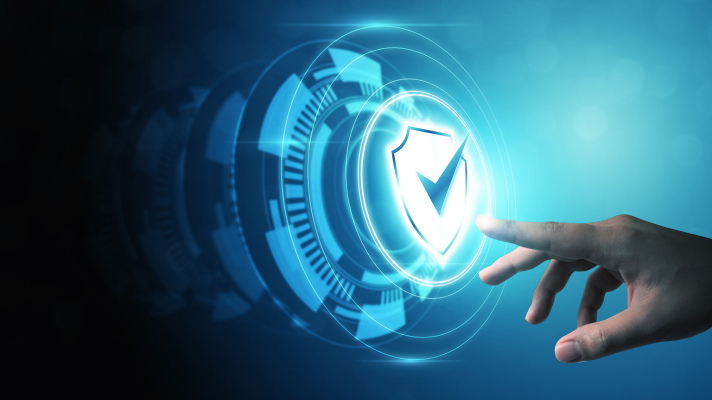To safeguard against viruses, malware, and other online risks, it is typically a good idea to install antivirus software on your computer. An antivirus program can add an extra layer of security to assist protect your sensitive data, even though it is not necessarily necessary. The fact that no antivirus tool can guarantee 100% security, however, underscores the necessity of exercising caution when accessing the internet and avoiding downloading unknown or questionable files.

How do viruses and malware access my PC?
There are numerous methods for a computer to get infected with malware or viruses. One typical technique is sending malicious files as email attachments, which when opened by the receiver infects their computer. The internet can also be used to download files, either directly from websites or through peer-to-peer file-sharing applications. In rare circumstances, a computer might get infected just by visiting a malicious website. Additionally, network connections, USB drives, and other external devices can all be used to propagate malware and infections. To guard your computer against these kinds of dangers, you should exercise caution when downloading files, opening email attachments, and accessing websites.
Is Apple Mac free from all kinds of malware and virus?
No, Apple Mac computers are not impervious to all viruses and malware. Although Macs are generally less prone to infestation than other kinds of computers, spyware and viruses can nonetheless impact them. In some cases, malware and viruses have been created particularly to target Mac machines. Users of Mac computers should exercise caution when using the internet and take precautions to safeguard their systems from viruses and malware. This may entail setting up an antivirus application and exercising caution when visiting and downloading files from websites.
What is a Phishing Attack?
In a phishing attack, a hacker deceives a target into divulging sensitive data, including login credentials or financial information, by using phony emails, websites, or texts. The attackers frequently employ a variety of strategies to make their phishing attempts appear authentic, such as utilizing the branding of an established business or inspiring anxiety or urgency in the victim. A phishing assault seeks to get sensitive data that can be exploited for illegal activities like identity theft or financial fraud.
As attackers frequently employ complex strategies to make their attempts seem legitimate, phishing attacks can be challenging to identify. When you receive emails, messages, or phone calls requesting personal information or login credentials, you should exercise caution and refrain from giving this information to unauthorized or dubious sources. You may assist defend yourself against these risks by employing a reliable anti-phishing tool and being aware of the telltale indications of a phishing attempt.
List of most trusted anti-phishing software?
The ideal anti-phishing program for you will rely on your individual requirements and preferences. There are many different anti-phishing tools available. Among the most reliable anti-phishing tools available right now are:
- Symantec Norton Anti-Phishing: This application uses cutting-edge technology to identify and prevent phishing attacks, thereby preventing the theft of your personal data.
- McAfee Anti-Phishing: This application uses real-time security to recognize and stop phishing attempts, assisting in the protection of your information.
- ESET Anti-Phishing: This application protects your sensitive information by detecting and blocking phishing attempts using cutting-edge algorithms and machine learning.
- Trend Micro Anti-Phishing: This tool helps to protect your information by detecting and blocking phishing attempts using a combination of machine learning and human knowledge.
How to avoid Phishing attacks?
You can take a number of precautions to protect yourself from phishing scams. These consist of:
Any unwanted phone calls, emails, or messages that request your login credentials or personal information should be avoided. Usually, legitimate businesses won’t ask for this information in this way.
Any email or message that uses threatening or urgent language should be avoided since the sender is likely trying to deceive you into disclosing critical information.
Do not open attachments or click links from unauthorized or dubious sources. It is preferable to get in touch with the business directly via a well-known and reliable email address or phone number if you have any doubts about the veracity of a message.
To help defend your computer from phishing assaults and other internet threats, use a trustworthy anti-phishing and anti-malware tool.
When using social media, use caution and refrain from disclosing private information or login passwords. Social media is frequently used by scammers to obtain data and conduct phishing attacks on specific people.
Always keep in mind that if an offer appears too good to be true or too urgent to be true, it probably is. It is advisable to exercise caution and refrain from disclosing sensitive information to unauthorized or dubious sources.
What is the biggest phishing attack incident?
Given that there have been numerous significant and effective phishing attacks over the years, it is challenging to pinpoint the largest phishing assault occurrence. Several well-known instances of phishing attacks include:
During a phishing attempt in 2016, users of Google and Yahoo were the target, and over a billion login credentials were stolen. Users were duped into supplying their login credentials by the attackers via a sophisticated spear-phishing effort, which was then utilized to access their accounts.
Sensitive personal and financial data were stolen in 2017 as a result of a phishing attempt directed at US Securities and Exchange Commission (SEC) employees. Employees were duped into supplying their login information through a bogus SEC website, which the attackers used to access the agency’s computers.
Over 83 million client records were stolen in 2018 as a result of a phishing attempt on the American multinational investment bank JPMorgan Chase. Employees were duped by the attackers using spear-phishing emails to divulge their login credentials, which were then used to access the bank’s systems.
These are only a few instances of widespread phishing assaults that have happened recently. It is crucial to be aware of the danger posed by phishing and to take precautions to safeguard yourself from such attacks.
most popular antivirus Software now in the market
Antivirus software is widely available, and the level of popularity of each application varies according to the particular features and functionalities they provide. Among the most well-known antivirus products available right now are:
- McAfee: McAfee is a well-known antivirus program that offers a range of security features, including real-time protection against viruses, malware, and other online threats.
- Norton: Norton is another popular antivirus program that offers a range of security features, including malware protection, web filtering, and the ability to block unsafe websites.
- Bitdefender: Bitdefender is a popular antivirus program that offers real-time protection against viruses, ransomware, and other threats. It also includes features such as a secure web browser and the ability to protect against malicious websites.
- Kaspersky: Kaspersky is a well-regarded antivirus program that offers a range of security features, including real-time protection against viruses, malware, and other threats. It also includes additional features such as a secure web browser and the ability to block unsafe websites.
Does antivirus slow my computer?
Antivirus software occasionally makes a computer run slower. This is because antivirus software uses a lot of system resources to scan files and keep an eye out for threats to your computer. When an antivirus program is performing a scan or the computer is already running other resource-demanding programs, this can make a computer run slower.
To prevent that here are some tips –
- To run the antivirus program efficiently, confirm that your computer has enough memory and processing power. Your computer might struggle to run an antivirus program effectively if it’s old or has few resources.
Any unnecessary programs or background processes should be stopped. The antivirus program may benefit from having more resources available. - To lessen the effect it has on the speed of your computer, change the settings of your antivirus program. You can alter the settings of many antivirus programs to lessen the impact they have on your computer’s performance.
Use a resource-conserving antivirus program that is lightweight. Some antivirus programs are made to be lightweight and use fewer resources, which can help lessen their impact on the performance of your computer.
In conclusion, it’s critical to remember that an antivirus program is a crucial tool for safeguarding your computer against malware, viruses, and other online threats. In some cases, it might make your computer run slower, but the extra security and safety it offers outweigh any potential performance hit.


